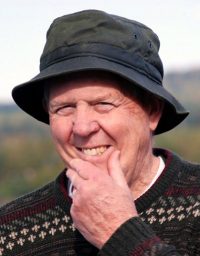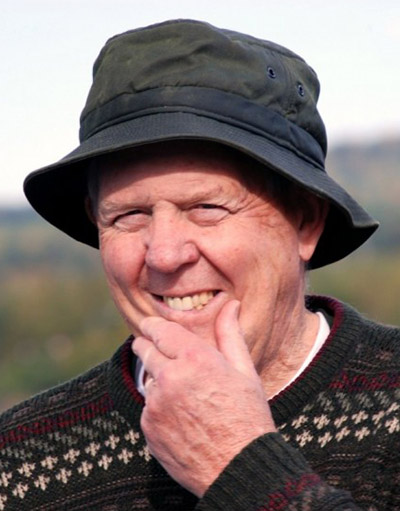 by Rachael Arnts, Mitch Kellogg–A century’s worth of data suggests the climate is changing and that several American sectors are facing a new normal.
by Rachael Arnts, Mitch Kellogg–A century’s worth of data suggests the climate is changing and that several American sectors are facing a new normal.
On his farewell tour before retirement, Mark Seeley, a climatologist, professor, and Minnesota public media personality, shared his data to prove that the climate change is related to agriculture and religion in America.
“We’re already in the process of reacting to climate change,” stated Seeley.
Seeley had three main objectives: Evidence in Climate Change, Agricultural Impacts, and Faith Perspectives and Reactions.
Seeley is a respected climatologist who hosts his own radio show in the Twin Cities. The title of his presentation was “Climate Change, Agriculture and Religion.”
Also known as the “Measurements Guy,” Seeley collects historical weather data and analyzes trends to help predict the future. With his data he was able to conclude which states were seeing a rise in temperature and precipitation. The minimum temperatures in the Midwest are rising. It is now harder to determine what the average temperature is for a particular season.
“The media frames things in a normal context. The base reference is changing so there is no normal,” Seeley explained.
Transitioning to the agriculture sector, Seeley gave many examples of how the climate is affecting farmers. For example, with temperatures allowing longer growing seasons, there are now more varieties in corn and soybeans. The downside is that there are now more crop diseases.
Another concern is soil lost due to the precipitation rates and the number of storms we receive here in Iowa that produce over two inches of rain. Rainfall has increased for the last fifty years.
To transition into his final point, Seeley referenced the Bible: “We are stewards of the land.” Seeley then added, “There is a moral and spiritual side to climate change. It’s not all about science. It’s about who we are and what we believe in.”
Seeley stressed that conservation is an ethic and putting people’s health at risk is not a moral. These beliefs led to the first ever faith-based discussion on climate change at a national convention last year.
He asks that people of faith be selfless in action, and that taking care of the planet and giving the children of our world a better tomorrow is the ultimate way to be a steward of this “big blue pill” we can call home.
For his concluding remarks Seeley said, “I think we planted a seed at the national meeting. The evidence is very hard to dismiss and deny. Whether you take a secular or religious perspective, it is clearly poor judgment to ignore this.”
The UPS Auditorium was limited to standing- room- only as students, professors, and members of the public crammed in. The vast majority of the crowd was there for a class, but the students received complements from Seeley on how engaged they all seemed.
“It was weird that Florida seems to be getting warmer and the states by it were getting cooler,” commented Ben Bruyer in reference to a temperature map of the United States that was shown during the presentsation.
“The chart that showed the recent upward swoop of [natural] catastrophes was very interesting,” commented Karissa Heckens. “It’s also interesting that this climate situation affects so many different sectors.”






Leave a Reply